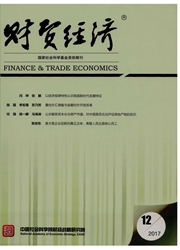

 中文摘要:
中文摘要:
本文使用中国综合社会调查(CGSS2008)数据,定量检验了经济全球化对中国居民幸福感的影响及其传导机制。结果表明,经济全球化显著提升了中国居民幸福感,但其主要通过降低通货膨胀率和失业率、增加人们收入、改善人们健康状况,以及缩小贫富差距等民生改善渠道,间接作用于居民幸福感。这一结论与样本选择无关,也不受自选择效应和变量内生性影响。中国政府在发挥比较优势有序推进经济全球化的同时,可考虑通过扩大社会保障、医疗、教育、就业培训等民生方面支出缓解其可能的负面效应,使经济全球化福利惠及中国每个居民。
 英文摘要:
英文摘要:
This article quantitatively tests the effect of economic globalization on Chinese residents' happiness and its transmission mechanism by using data from CGSS2008. The results show that economic globalization significantly improves the well-being of the Chinese residents, but it mainly influence residents' well-being indirectly through reducing inflation and unemployment, increasing incomes and improving people's health condition, as well as narrowing the gap between rich and poor and other livelihood improvement channels. This conclusion has nothing to do with the sample selection, self- selection effect and endogenous variable. While Chinese government promotes economic globalization through taking comparative advantages, the government can do better to alleviate its possible negative effects of economic globalization through expansion of social security, health care, education, job training and other livelihood aspects of spending, which can benefit every resident in China.
 同期刊论文项目
同期刊论文项目
 同项目期刊论文
同项目期刊论文
 期刊信息
期刊信息
